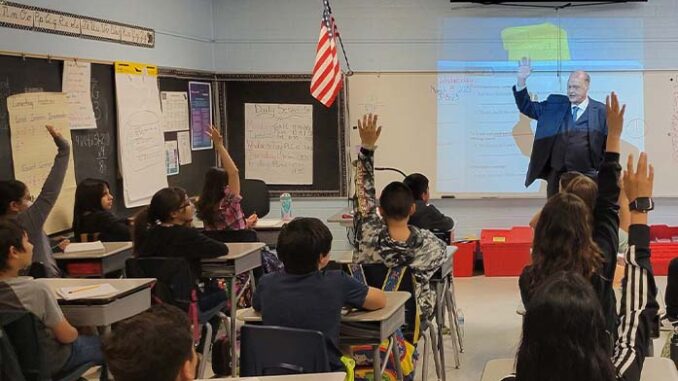
It would seem the mainstream media would support AZ State Superintendent Tom Horne for his unfaltering commitment to school improvement – modelled after his many accomplishments during his former two terms as state superintendent (2003-2011). Presently, according to U.S. News, our district schools rank 50th among the states in academic achievement. It cannot get much worse than that!
In 2006, the Arizona Republic Editorial Board endorsed Horne for a second term as state superintendent because of his successes. They cited the following: rates of academic proficiency had improved from a dismal 55 percent to about 70 percent; the college- bound students’ academic progress had exceeded the national average; higher teacher salaries had encouraged well-educated college graduates to enter the profession; and, the state department of education had become staffed with skilled education professionals who knew how to provide quality services to school districts.
At the end of Horne’s second term in 2010, the Republic board continued to praise Horne’s administration by endorsing his deputy superintendent, Margaret Garcia Dugan, as a fitting replacement of Horne who was now running for AZ attorney general. The board expressed solid support for Dugan “for having confronted some of the most controversial education issues of the past decade, with professionalism, dignity, and, yes, bravery.” Moreover, the board credited her for not giving up ground “in the fight against those who seek to politicize the education of minority students.”
Dugan had fought tirelessly against bilingual education, now called “dual-language,” a program that puts more emphasis on maintaining the home language of mostly Spanish-speaking children than on their mastery of English. This program had proven time and time again disastrous, as it still does as “dual-language,” by depriving these children of learning enough English to qualify for mainstream classes.
Horne became AZ attorney general in 2011; Dugan lost her election to long-time state legislator John Huppenthal. He lasted as superintendent for one term, followed by Diane Douglas and Kathy Hoffman, under whose watch the academic gains of the Horne/Dugan years disappeared.
Yet, the Arizona Republic published an article recently (“’Watchdogs’ to monitor Horne on English-only education policy,” March 23, 2023) that gave undue attention to bilingual education, without including the advantages of English immersion techniques. I requested an opportunity to write a response but was ignored, despite my experience and expertise on the subject.
63% of Arizona voters approved Proposition 203 on November 7, 2003. This law, still on the books, mandates that children entering our schools not knowing English learn English by being taught in English through immersion techniques. Large numbers of Hispanic parents and Valley employers worked together for this cause because they had witnessed the harm done to children who graduated from K-12 Arizona school districts without having mastered basic English.
Under Horne’s predecessor, a pathetic 4 percent of English learners had reached English proficiency. Under Horne and Dugan, it shot up to an average of 29 percent from 2008 to 2015. Now it’s down to 9 percent due mostly to a lack of teacher training. Horne and Dugan are presently reestablishing this very important element.
School officials needed reasonable flexibility regarding the 4-hour time frame – which I sought, backed by both Horne and Dugan, through SB1033 in 2012. Whereas it passed unanimously in the state senate, Governor Brewer made sure it failed. She seemed bent on keeping English learners segregated! Any bill on this subject since then has had the intention of increasing “dual-language” which has already spread throughout Arizona schools – in total disregard for the law.
Most likely, the small percentage of English learners reaching English proficiency consists mostly of students whose first language is not Spanish. Few teachers speak a second language other than Spanish. Thus, the non-Spanish speaking English learners receive all their instruction in English and tend to do quite well because of it.
It is time for the media, self-appointed watchdogs and Arizonans in general to support, rather than obstruct, Tom Horne’s commonsense ideas.
